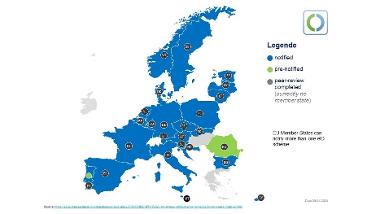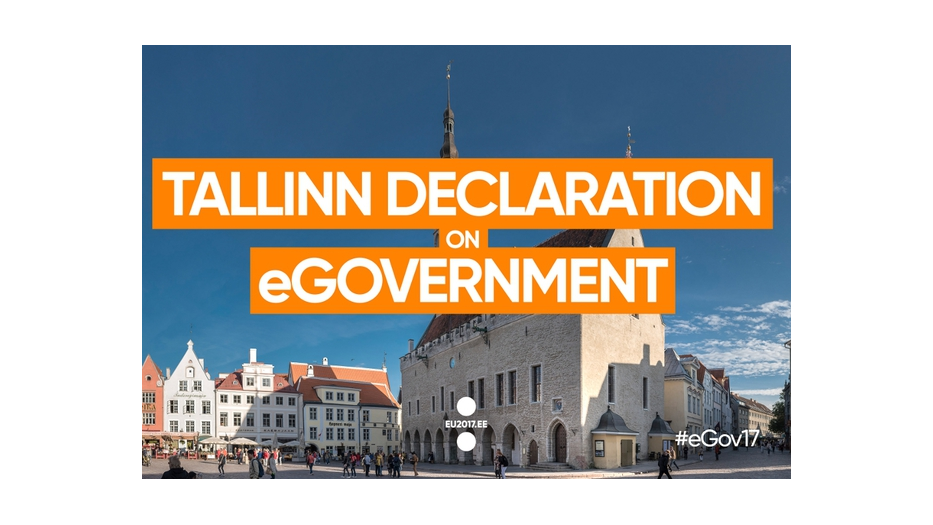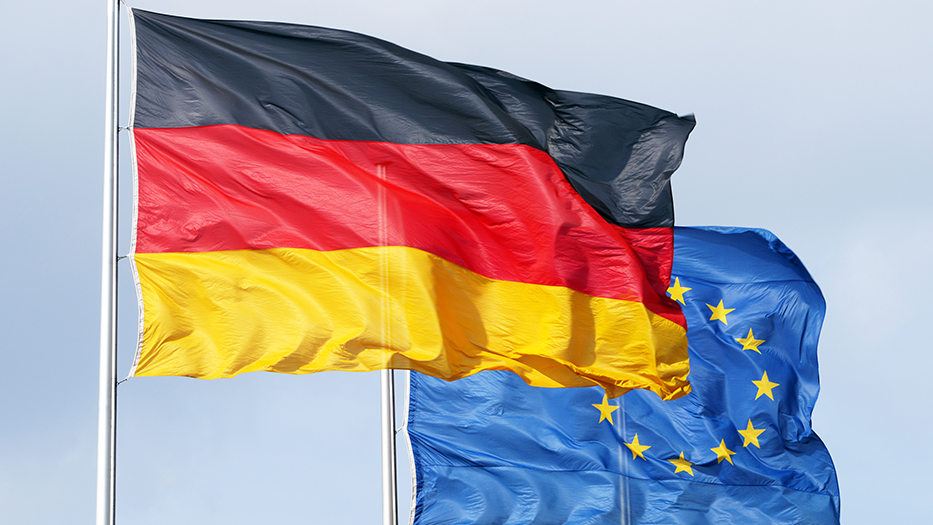The eIDAS Regulation and its significance for the eID function
Article
The eIDAS Regulation includes provisions on electronic identification and electronic trust services which are binding for all EU member states.
Regulation (EU) No 910/2014 on electronic identification and trust services for electronic transactions in the internal market and repealing Directive 1999/93/EC (eIDAS Regulation) entered into force on 17 September 2014.
The eIDAS Regulation includes provisions on electronic identification and electronic trust services which are binding for all EU member states. The regulation creates a standard framework for the cross-border use of electronic means of identification, and thus the eID function, and trust services.
The text of the regulation and its various implementing acts for the area of electronic identification are available here.
Scope of the regulation
As an EU regulation, the eIDAS Regulation is directly applicable law in all 28 EU member states and in the European Economic Area.
The regulation applies to all public administration.
 Graphic of the map of Europe with EU member states highlighted in different colours depending on the status of notification according to eIDAS (as of 01.06.2021) (Larger version opens in new window)
Graphic of the map of Europe with EU member states highlighted in different colours depending on the status of notification according to eIDAS (as of 01.06.2021) (Larger version opens in new window)
Source: Federal Ministry of the Interior, Building and Community
eIDAS - Status of Notification of National eID Schemes
The implementation in the area of electronic identification is to be completed by 29 September 2018.
According to the regulation, cross-border identification is to be based on the reciprocal recognition of electronic means of identification of the member states.
In a first step, the member states can voluntarily notify the European Commission of their electronic means of identification.
All notified electronic means of identification must then be recognized by all other member states.
German online ID function has highest possible assurance level
In accordance with Article 9 of the eIDAS Regulation, the Federal Republic of Germany started the process of notifying the electronic identification function of the German national ID card and electronic residence permit on 20 February 2017 by sending the necessary documents to the European Commission. Meanwhile, it is the first EU member state to have completed the notification process.
The notification was published in the Official Journal of the European Commission on 26 September 2017, following a review by technical experts of almost all member states, who attributed the highest assurance level pursuant to the eIDAS Regulation, which is “high”.
The notification means that all EU member states have to open their own administrative proceedings for the German online ID function since 29 September 2018, if and when they need an electronic identification at a “substantial” or “high” assurance level.
In the medium and long term, German citizens may use the eID function to enrol at universities, register their business, file their tax returns or apply for vehicle registration in other EU member states, among other things.
Joint Declaration on E-Government in the EU
On 6 October 2017 the EU and EFTA ministers responsible for e-government signed a joint declaration at their meeting in Tallinn, the capital of Estonia.
refer to: Tallinn Declaration on egovernment (Opens new window) Source: Estnische EU-Ratspräsidentschaft
Source: Estnische EU-Ratspräsidentschaft
The aim of the “Declaration on eGovernment” is to expand digital services in the administration also at international level. The idea is to offer more digital administrative services and to create a closer network of IT systems in the member states.
The following two paragraphs are taken from the Declaration and refer to electronic identification:
“We will in our countries
- speed up preparations in our countries to ensure timely implementation and promote the widespread use across sectors of the Regulation on electronic identification (eID) and trust services for electronic transactions in the internal market (eIDAS)10, including to undertake the voluntary notification of electronic identity schemes used for access to public services at earliest possibility;
- work to make our digital public services secure and properly identifiable by using the eIDAS framework for qualified electronic trust services, including by advancing the take-up of qualified website authentication certificates and qualified electronic seals;”
“We call upon - the Commission to take steps to increase the recognition of eIDAS compliant solutions by global market players, in particular, for notified electronic identification means and qualified website authentication certificates, and to provide support to accelerate the uptake of those services for cross-border activities;“
The complete Tallinn Declaration can be found in the download section.


